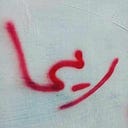Israeli Elections: From Ben-Gurion To Ben-Gvir, Israel Politics Are Extreme Racism And Supremacism
“He is a true and honest representative of Zionism, the racist ideology that views Palestinians as nothing more than an obstacle in the path of total domination and colonization.”
The “he” in the above post on Twitter by Ali Abunimah refers to Itamar Ben-Gvir, a Kahanist racist Jewish supremacist, who has just won a seat in the Israeli Knesset (parliament). Others on Twitter are posting a video of him on the rampage with comments such as the following by Ori Givati:
“When I hear his [Itamar Ben-Gvir’s] name I am reminded of this video of him (left, white shirt) participating in a violent raid in Hebron, knocking down a clothes stand for fun. This is the person who was elected today.”
As a Palestinian, when I hear about this hateful individual being elected in Israel today, I am not reminded of video clips depicting his or other violence in Hebron or Jerusalem or the Gaza Strip. Rather, I think of the Zionist Jewish violence in Palestine that culminated in the creation of the Jewish state on 78 percent of our homeland.
Ben-Gvir’s violence is simply an extension and his mentality and actions are no different than those of the Zionist colonizers who preceded him. [Read: A Short History of the Colonization of Palestine, especially the following sections: Myth: “‘Israel’ was a land without a people for a people without a land” and “Myth: The state of Israel had to be created as a response to the Holocaust.”]
That’s what Ali Abunimah means when he describes this particular racist Jewish supremacist as “a true and honest representative of Zionism.” The whole Zionist regime, from its inception, exemplifies an extremist problem. Israel’s hasbara might have succeeded in putting a fake varnish of “civilization” and “democracy” on Israel’s successive governments these past decades since the Nakba, but that varnish is wearing thin, because contrary to Israeli propaganda, people are beginning to understand that Zionism has not much to do with Judaism, except in exploiting it, especially in its extremist manifestations.
Zionism has always relied on zealots of every type to achieve its ends.
Prime Minister David Ben Gurion and Foreign Minister Golda Meir, November 1st 1962
The above photo of Ben Gurion and Golda Meir is from the archive of the fifth Knesset, during which “the Prime Minister made an announcement concerning the United Nations Security Council’s resolution to condemn Israel for the shooting incidents on the Syrian border.”
I regard the 23rd (current) Knesset with the same revulsion as I do the fifth — or the first, during which (in 1950) it passed the Law of Return — not the return of the Palestinian refugees whose tragic and violent dispossession had made it possible for the assembled Jews to declare a Jewish state on top of the ruins of Palestinian villages, but rather of the so-called “return” of world Jewry to a stolen land.
Similarly, the following vision is not just the crazed vision of Ben-Gvir or Christian evangelists; it is the crazed vision of Zionism itself:
“Israel is now back in the Land and has been recognized as a sovereign nation since 1948. Since 1967 Israel has controlled most of the territory between the Jordan and the Mediterranean. Of course the Palestinians have the West Bank, Gaza and Jericho, but they do not have sovereignty over it and Israel is responsible for national security. Israeli settlements are multiplying in the West Bank making division of the land almost impossible.”
In truth, I don’t even follow Israeli elections. Nor would I have participated in them had I been a Palestinian citizen of the apartheid state. I agree with Eitan Bronstein Aparicio, a left-wing activist whose parents emigrated to Israel from Argentina when he was 5, changing his name from Claudio to Eitan, who says in a recent webinar (Hebrew):
“The Knesset is a central institution of Israel, the Jewish state, a Zionist prison. Participating in the elections means giving legitimacy to one of the main institutions of the Israeli apartheid regime, which enacts racial laws, like the nationality law.”
I am following Palestinian politics in the occupied West Bank and Gaza Strip and hoping against hope that something, anything, would spark radical political change in the Palestinian Authority. I have this hope, knowing full well that the international community is poised again, as it did after the Palestinian legislative elections of January 2006 when Hamas won, to compel Palestinians (through sanctions directed at the occupied rather than the occupiers!) to overthrow the government they elected democratically and embrace one that they had rejected.
But as Josh Ruebner writes in his review of Jeff Halper’s recent book Decolonizing Israel, Liberating Palestine: Zionism, Settler Colonialism and the Case for One Democratic State, “The unjust two-state paradigm — which has served as the reigning international consensus since the UN General Assembly recommended in 1947 to partition Palestine against the wishes of its indigenous majority population — has run its course.”
And as Yara Shoufani writes in an article titled ‘Palestinian national liberation: Beyond one versus two states’: “The struggle for national liberation will not waver. The future of Palestine must be decided by all Palestinians upon return to the homeland, in a Palestine that is not under occupation and apartheid.”
I am envisioning a post-colonial Palestine, a liberated Palestine that has dismantled apartheid structures and infrastructures.
__________________
Rima Najjar is a Palestinian whose father’s side of the family comes from the forcibly depopulated village of Lifta on the western outskirts of Jerusalem and whose mother’s side of the family is from Ijzim, south of Haifa. She is an activist, researcher and retired professor of English literature, Al-Quds University, occupied West Bank.
